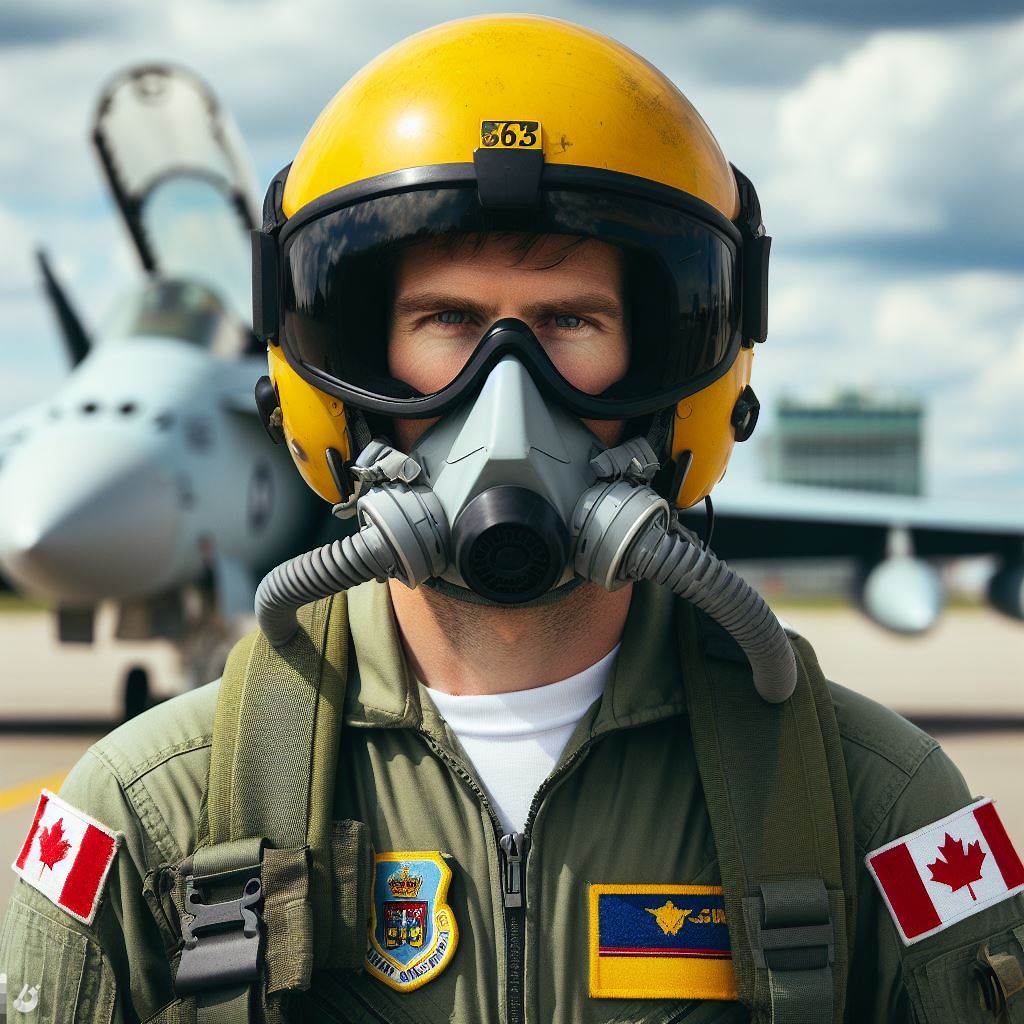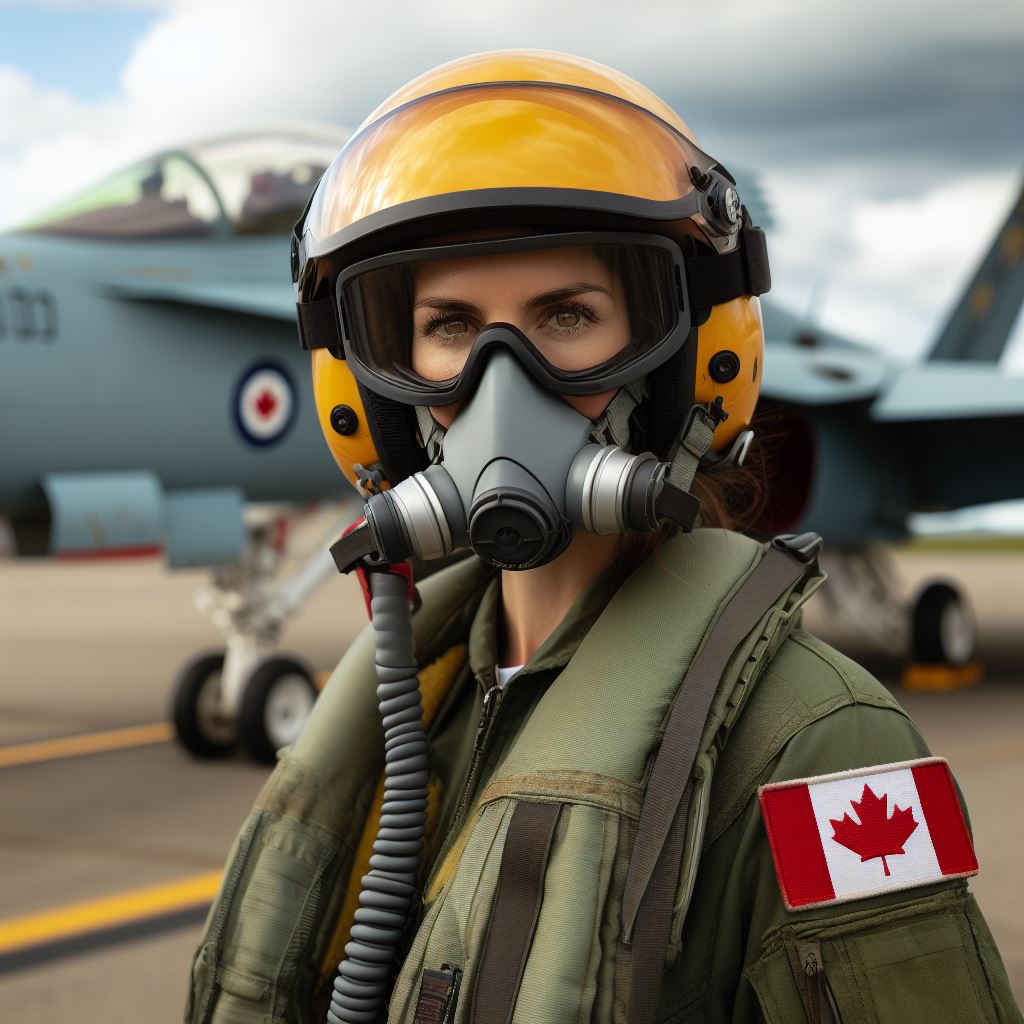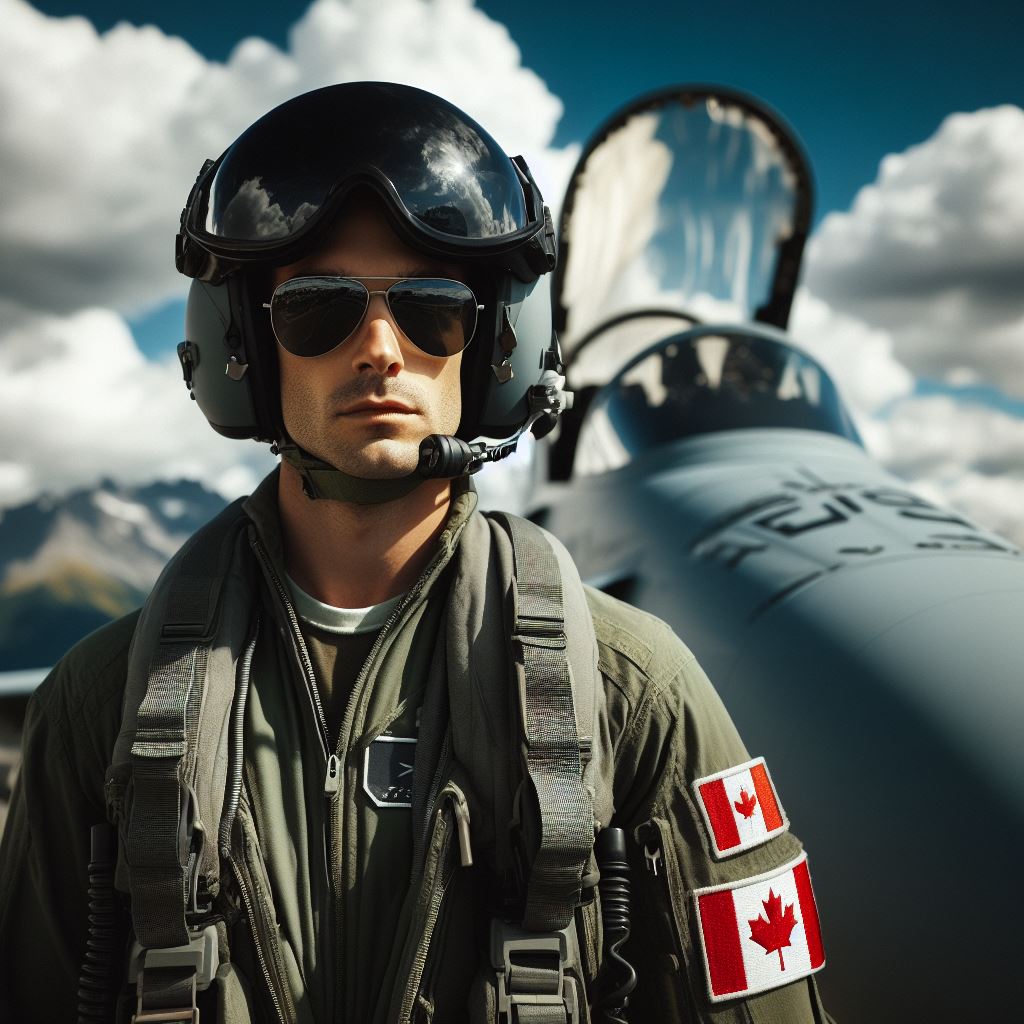Introduction
In the field of aviation, choosing a reputable pilot training school is of utmost importance.
With the increasing demand for pilots in Canada, it is crucial to receive quality education and guidance.
This blog post aims to delve into the top pilot training schools in Canada and provide an overview of the aviation industry in the country.
When it comes to pursuing a career as a pilot, the training school you choose plays a significant role in shaping your future.
A reputable training school not only ensures that you receive proper education but also helps you establish a strong foundation in aviation.
The aviation industry in Canada is thriving, with an ever-growing demand for pilots.
From commercial airlines to private aviation, there are ample opportunities for aspiring pilots.
To seize these opportunities, it is vital to select a pilot training school that prepares you for the challenges of the industry.
The purpose of this blog post is to provide aspiring pilots with valuable information regarding the top pilot training schools in Canada.
By highlighting the key features and offerings of these schools, readers will be able to make informed decisions about their pilot training journey.
In the following sections, we will discuss the top pilot training schools in Canada and shed light on each school’s unique programs and advantages.
Stay tuned to discover your pathway to becoming a successful pilot in Canada.
Read: Top Pilot Training Schools in Canada
Criteria for evaluating pilot training schools in Canada
Criteria for Evaluating Pilot Training Schools in Canada
- Accreditation and certifications ensure the school meets industry standards and regulatory requirements.
- A reputable and well-established track record showcases the school’s ability to deliver high-quality training.
- Facilities and training aircraft should be modern, well-maintained, and equipped with the latest technology.
- Experienced instructors with a strong background in aviation provide valuable knowledge and guidance to students.
- Job placement assistance helps graduates secure employment opportunities upon completion of their training.
When considering pilot training schools in Canada, it is essential to evaluate them based on specific criteria.
This ensures that you choose a reputable institution that offers comprehensive training and sets you up for success in your aviation career.
The following factors should be considered when evaluating pilot training schools:
Accreditation and Certifications
One of the most critical factors to consider is the school’s accreditation and certifications.
It is essential to choose a training school that is recognized and approved by aviation regulatory bodies such as Transport Canada.
Accreditation ensures that the school meets industry standards and regulatory requirements, guaranteeing the quality of training you receive.
Reputation and Track Record
A pilot training school’s reputation and track record are essential indicators of its ability to deliver quality training.
Research the school’s history, alumni success stories, and reviews from former students.
A school with a solid reputation and a proven track record is more likely to provide a comprehensive and effective training program.
Facilities and Training Aircraft
The availability and condition of training facilities and aircraft play a crucial role in the learning experience.
Modern facilities equipped with state-of-the-art technology enhance the training process.
Additionally, well-maintained training aircraft ensure safety and provide hands-on experience with the latest industry-standard equipment.
Unlock Your Career Potential
Visualize a clear path to success with our tailored Career Consulting service. Personalized insights in just 1-3 days.
Get StartedExperienced Instructors
The expertise and experience of the instructors greatly impact the quality of pilot training.
Look for schools that employ instructors with significant aviation experience and a strong background in the field.
Instructors who have worked in various aviation roles bring real-world knowledge and insights to the training process, enhancing the learning experience.
Job Placement Assistance
Securing employment in the aviation industry can be a daunting task for fresh graduates.
A good pilot training school should provide job placement assistance, connecting students with potential employers and helping them navigate the job market.
Consider schools that have a strong network of industry connections and a track record of successful job placements for their graduates.
In essence, when choosing a pilot training school in Canada, it is essential to evaluate several criteria.
Accreditation and certifications, along with a solid reputation and track record, create a foundation of trust and quality.
Additionally, state-of-the-art facilities, experienced instructors, and job placement assistance contribute to a comprehensive and successful training program.
By considering these factors carefully, you can select a pilot training school that best suits your goals and prepares you for a rewarding aviation career.
Read: Pilot Salary Ranges in Canada
Top Pilot Training Schools in Canada
When it comes to pilot training, Canada offers some of the best flight schools in the world.
From comprehensive programs to state-of-the-art facilities and experienced instructors, these schools provide an excellent learning environment for aspiring pilots.
Here are three top pilot training schools in Canada:
Canadian Flight Academy (Toronto, ON)
The Canadian Flight Academy, located in Toronto, Ontario, is a leading pilot training school in Canada.
It offers a wide range of training programs and has gained a reputation for its high standards and quality education.
Accreditation and Certifications
- Transport Canada – Approved Training Organization
- ISO 9001:2015 Certified
Training Programs Offered
- Private Pilot License
- Commercial Pilot License
- Instrument Rating
- Multi-engine Rating
Facilities and Training Aircraft
- Modern classrooms with advanced training equipment
- Fleet of well-maintained Cessna, Piper, and Diamond aircraft
- Full-motion flight simulators for realistic training
Testimonials or Success Stories
“I am extremely grateful to Canadian Flight Academy for their exceptional training.
The instructors are knowledgeable, patient, and supportive, ensuring that I had the skills and confidence to succeed in my career as a pilot.” – John Smith, Commercial Pilot
Tuition Fees and Financial Aid Options
Please contact the Canadian Flight Academy for detailed tuition fees and information on available financial aid options.
Barrie Flying Club (Barrie, ON)
The Barrie Flying Club, located in Barrie, Ontario, is a well-established flight training school that has been in operation for over 70 years.
It offers a range of programs for aspiring pilots.
Accreditation and Certifications
Transport Canada – Flight Training Unit
Training Programs Offered
- Recreational Pilot Permit
- Private Pilot License
- Commercial Pilot License
- Float Rating
Facilities and Training Aircraft
- Modern training facilities with a dedicated flight training building
- Training aircraft include Cessna and Piper models
Testimonials or Success Stories
“I had a wonderful experience training at the Barrie Flying Club.
The instructors were highly experienced and provided personalized attention, ensuring that I gained all the necessary skills and knowledge to become a competent pilot.” – Emily Johnson, Commercial Pilot
Tuition Fees and Financial Aid Options
For detailed information on tuition fees and available financial aid options, please contact the Barrie Flying Club.
Montreal Flight Centre (Montreal, QC)
The Montreal Flight Centre, located in Montreal, Quebec, is a renowned flight training institution providing comprehensive aviation programs.
It is committed to delivering top-notch pilot training.
Accreditation and Certifications
Transport Canada Approved
Training Programs Offered
- Private Pilot License
- Commercial Pilot License
- Flight Instructor Rating
- Airline Transport Pilot License
Facilities and Training Aircraft
- Modern training facilities equipped with the latest technology
- Large fleet of well-maintained aircraft, including Cessna, Cirrus, and Diamond models
Testimonials or Success Stories
“My experience at the Montreal Flight Centre was exceptional.
The instructors were highly professional and supportive, and the training program was well-structured, providing me with the skills and knowledge needed to pursue a successful career in aviation.” – Michael Adams, Airline Pilot
Tuition Fees and Financial Aid Options
For detailed information on tuition fees and available financial aid options, please contact the Montreal Flight Centre.
In general, these top pilot training schools in Canada provide excellent training programs, state-of-the-art facilities, and knowledgeable instructors.
Whether you are beginning your journey as a pilot or seeking advanced ratings, these schools offer the resources and support needed to achieve your aviation goals.
If you are interested in pursuing a career in aviation or fulfilling your dream of becoming a pilot, contact one of these schools to get started on your exciting journey.
Read: How to Become a Pilot in Canada

Factors to Consider When Choosing a Pilot Training School
Location
- Accessibility: Choose a pilot training school that is easily accessible from your location.
- Proximity to Airports: Look for schools located near airports to ensure convenient practical training opportunities.
- Climatic Conditions: Consider schools situated in regions with diverse weather conditions for comprehensive training.
Cost and Affordability
- Tuition Fees: Compare the cost of pilot training programs offered by different schools.
- Additional Expenses: Take into account expenses such as accommodation, transportation, and study materials.
- Financing Options: Check if the school offers financial aid or flexible payment plans to assist with affordability.
Course Duration and Flexibility
- Program Length: Find out the duration of the pilot training program and ensure it fits your schedule.
- Part-Time Options: If you have other commitments, look for schools that offer part-time or flexible training schedules.
- Training Intensity: Consider the school’s approach to training intensity to ensure it matches your learning style and pace.
Training Methodology
- Practical vs. Theory: Determine if the school offers a balanced approach between practical flight training and theoretical knowledge.
- Simulator Training: Inquire about the availability of simulators to enhance flight experience and safety.
- Instructor Qualifications: Research the qualifications and experience of the instructors to ensure effective training.
Additional Resources and Support
- Aircraft Fleet: Check the variety and condition of the aircraft fleet available for training purposes.
- Support Services: Look for schools that provide support services like career counseling and job placement assistance.
- Alumni Network: Consider the strength of the school’s alumni network, as it can provide valuable connections and opportunities.
Choosing the right pilot training school is crucial for your aviation career.
Consider the following factors when making your decision:
Location
Location plays a significant role in convenience and opportunities for practical training.
Look for schools that are easily accessible and situated near airports.
Furthermore, consider regions with diverse weather conditions to obtain comprehensive training experience.
Cost and Affordability
Cost and affordability are vital considerations. Compare the tuition fees of different pilot training schools and factor in additional expenses like accommodation, transportation, and study materials.
Also, explore financing options and flexible payment plans to make pilot training more affordable.
Course Duration and Flexibility
Course duration and flexibility are essential, especially if you have other commitments.
Ensure that the program length fits your schedule, and look for schools that offer part-time or flexible training options.
Additionally, consider the training intensity and approach to match your learning style.
Training Methodology
The training methodology of a school directly impacts the quality of education you receive.
Find a school that offers a balanced approach between hands-on flight training and theoretical knowledge.
Simulators should also be available to enhance your flight experience and safety.
Moreover, investigate the qualifications and experience of the instructors to ensure effective training.
Additional Resources and Support
Additional resources and support provided by the school are significant factors to consider.
Evaluate the variety and condition of the aircraft fleet, as well as the availability of support services like career counseling and job placement assistance.
A strong alumni network can also offer valuable connections and career opportunities.
In summary, choosing the right pilot training school involves thorough research and consideration of multiple factors.
Take into account the location, cost, course duration, training methodology, and additional resources to make an informed decision.
Remember, the school you choose will have a significant impact on your future aviation career.
Read: A Day in the Life of a Canadian Pilot
Conclusion
We have discussed some of the top pilot training schools in Canada.
These schools provide excellent training programs and have a strong reputation in the aviation industry.
It is important to thoroughly research and consider factors such as location, facilities, and cost when choosing a school.
By choosing the right pilot training school, aspiring pilots can set themselves up for a successful career in aviation.
It is crucial to follow one’s dreams and pursue a career that they are passionate about.
With hard work, dedication, and the right training, aspiring pilots can achieve their goals and soar to new heights in the world of aviation.




